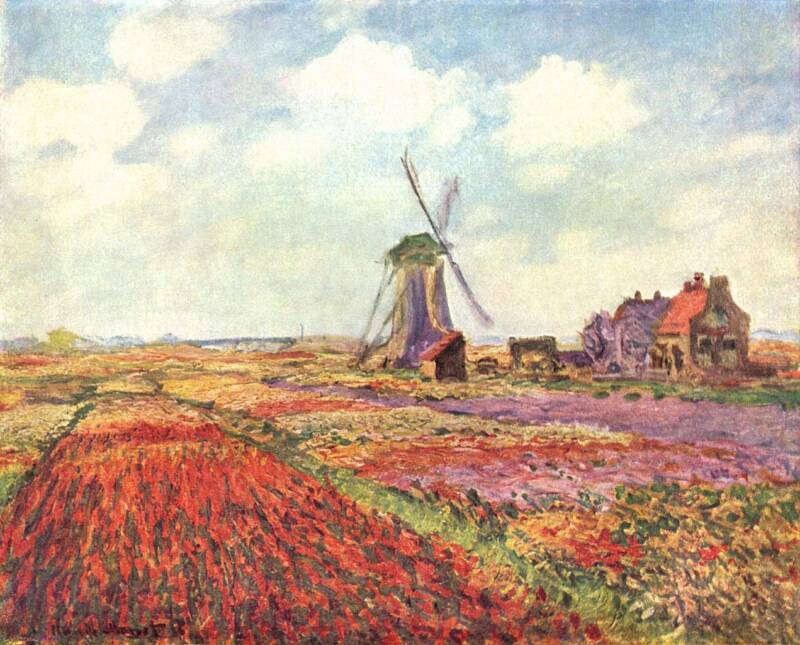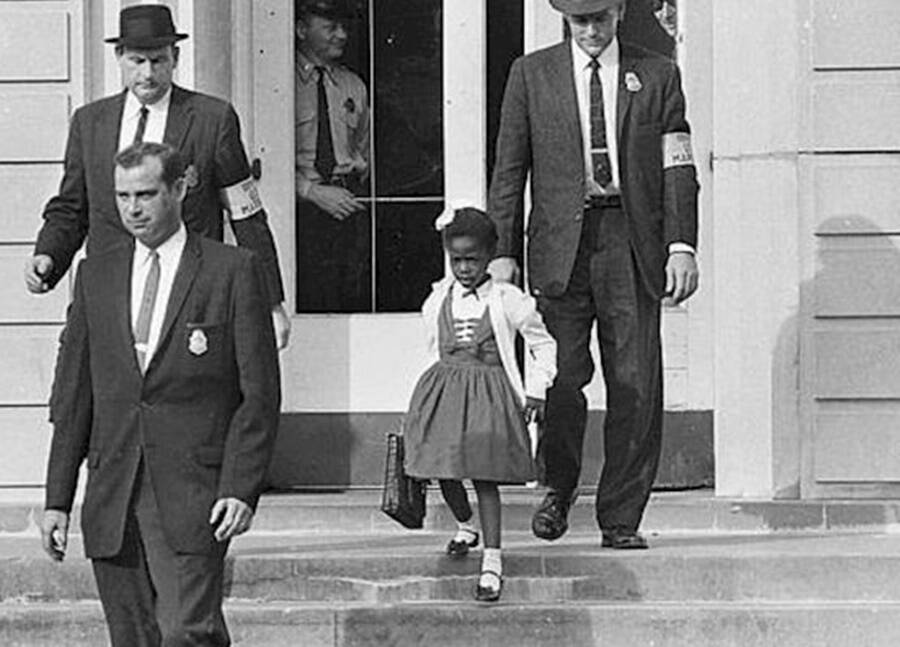What happened on this day in history: Herman Melville's Moby-Dick is published, Ruby Bridges integrates an elementary school in New Orleans, and more events from November 14th.
1840: Claude Monet Is Born

Claude Monet/Musée d’OrsayClaude Monet’s Tulip Fields, painted in 1886.
Renowned French artist Claude Monet is born in Paris. Remembered as the founder of the Impressionist art movement, Monet became known for his small brush strokes and emphasis on the effects of light. Some of his most famous paintings include Impression, Sunrise and the Water Lilies series. In the late 20th century, he became one of the world’s most celebrated painters, and he remains so even 100 years after his death.
1851: Moby-Dick Is Published
Herman Melville publishes his esteemed novel Moby-Dick about the fictional Captain Ahab’s quest to catch an elusive white whale. The book has one of the most famous opening lines in literature — “Call me Ishmael” — but it wasn’t very successful when it was released. It wasn’t until 30 years after Melville’s death that Moby-Dick became critically acclaimed, and today it’s considered one of the great American classics.
1933: Danny Greene Is Born
American mobster Danny Greene, also known as the “Irishman,” is born in Cleveland, Ohio. Growing up, Greene often fought with the Italian-American students he attended high school with, and that rivalry persisted into adulthood — when Greene competed with the Italian-American Mafia for control of Cleveland’s criminal underworld.
He formed his own gang called “The Celtic Club” and partnered with notorious racketeer John Nardi before he was killed by a car bomb planted by the Mafia in 1977.
1960: Ruby Bridges Integrates A Louisiana Elementary School

Wikimedia CommonsFederal marshals escort Ruby Bridges to school to protect her from a racist mob in 1960.
Federal marshals escort six-year-old Ruby Bridges into the all-white William Frantz Elementary School in New Orleans.
Black parents had sued the district for continuing to segregate its public schools by race following the Supreme Court’s Brown v. Board of Education decision, but the Orleans Parish School Board continued to defy federal orders to integrate. Finally, four students — including Ruby Bridges — were allowed to transfer to an all-white school, though they faced violent threats and retaliation.
1969: NASA Launches Apollo 12
NASA launches Apollo 12, the second spacecraft to land on the Moon. The Apollo 12 spacecraft was identical to Apollo 11, the first spacecraft to land on the Moon. Commander Charles Conrad and Lunar Module Pilot Alan L. Bean oversaw the mission and spent over a day on the Moon’s surface conducting experiments and setting up equipment. The launch was successful and the crew returned safely to Earth on November 24.
1970: Marshall University Football Team Dies In Plane Crash
The Marshall University football team dies in a plane crash. All 75 people on board died in the crash, making it the worst sports-related air tragedy in U.S. history.
2012: Rita Crundwell Is Convicted Of Largest Municipal Fraud In U.S. History
Rita Crundwell is convicted of largest municipal fraud in U.S. History. For over twenty years, Crundwell embezzled funds from the city of Dixon, Illinois to fund her lavish lifestyle.



